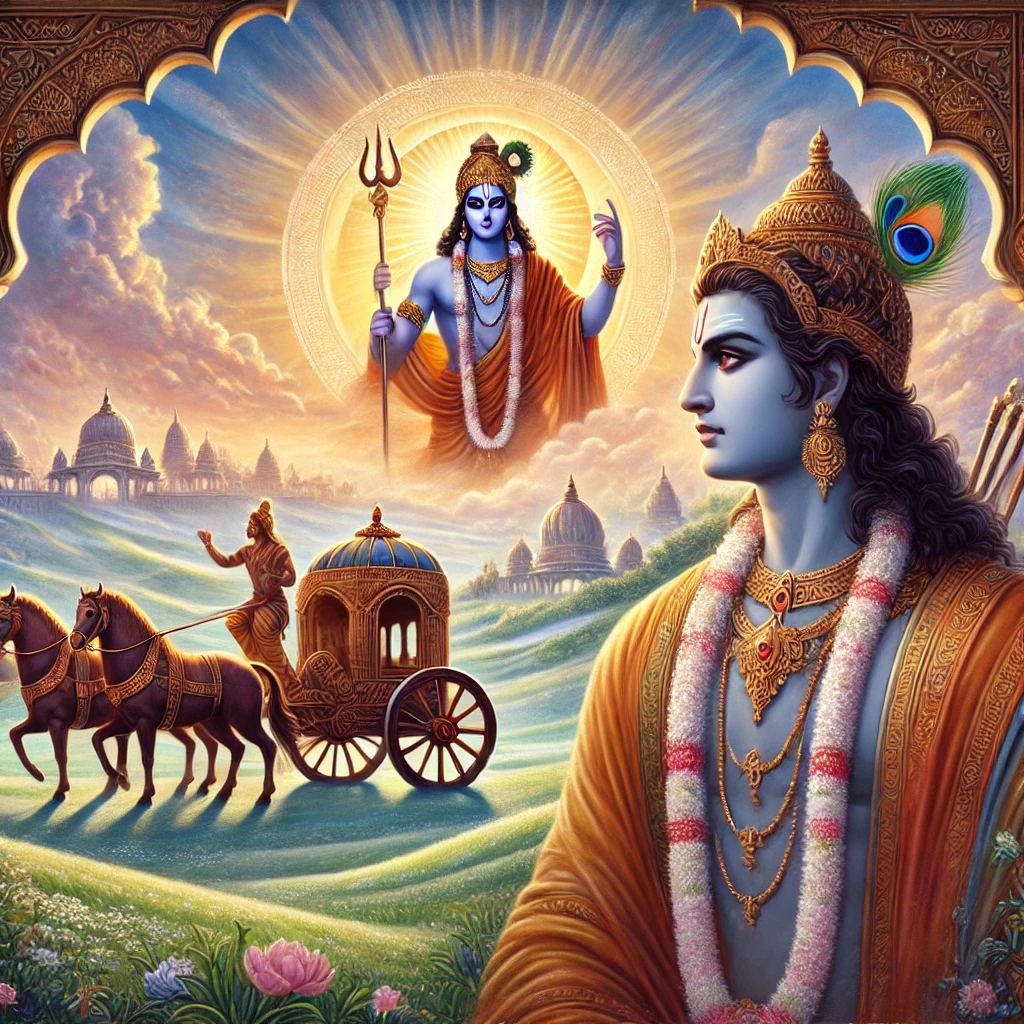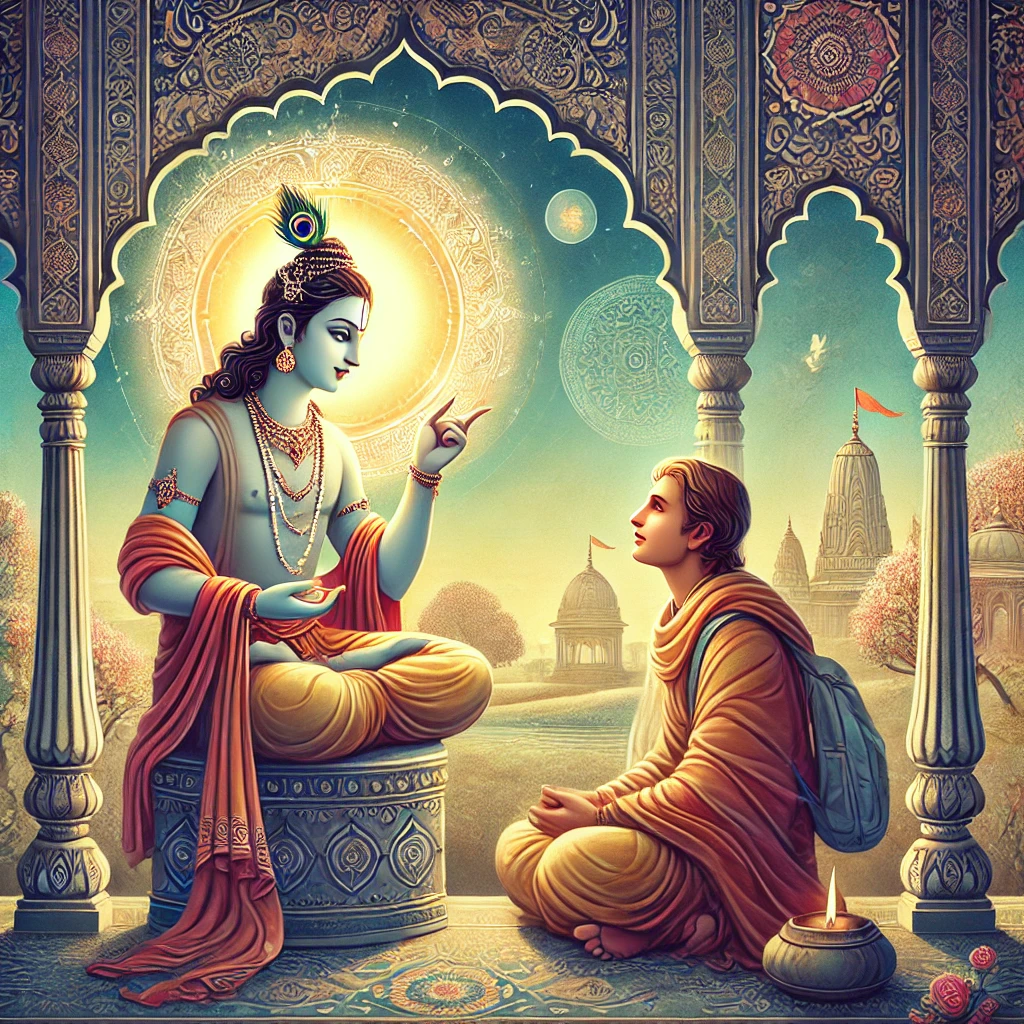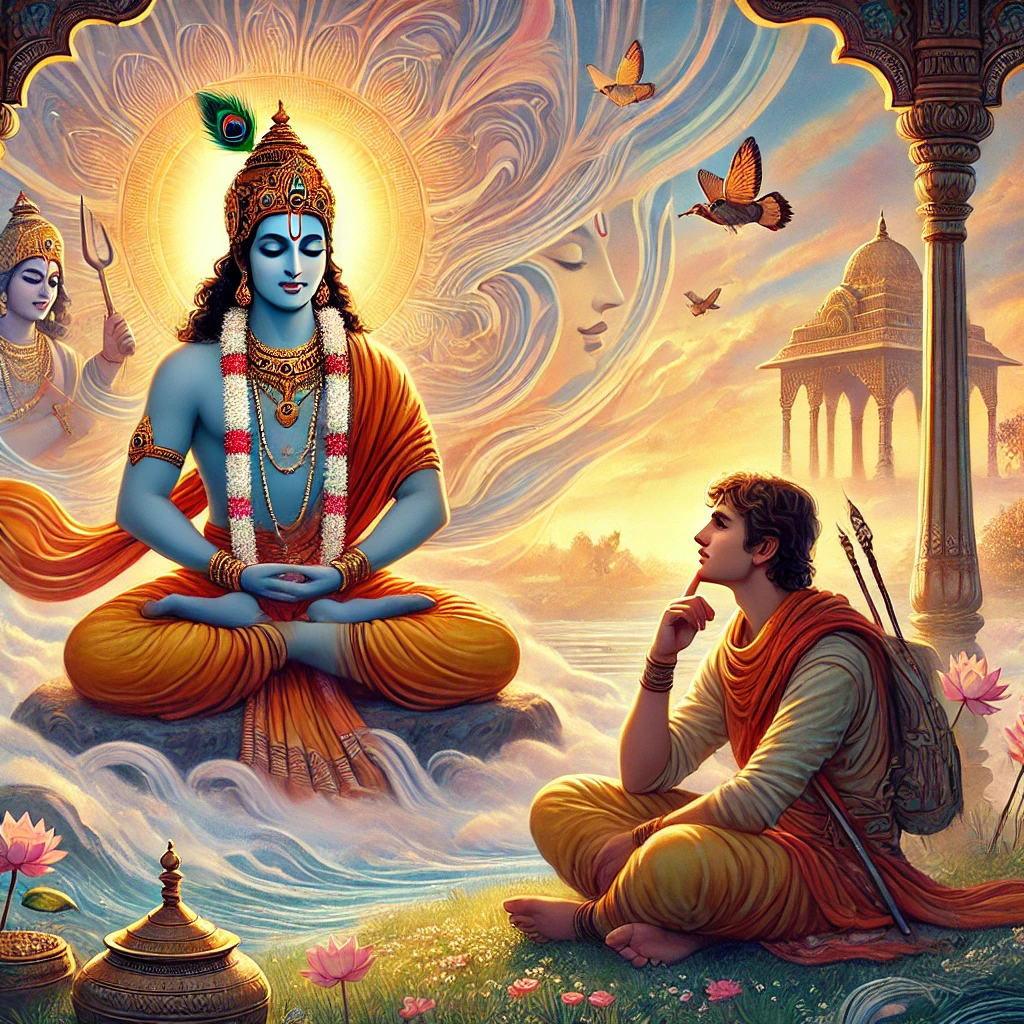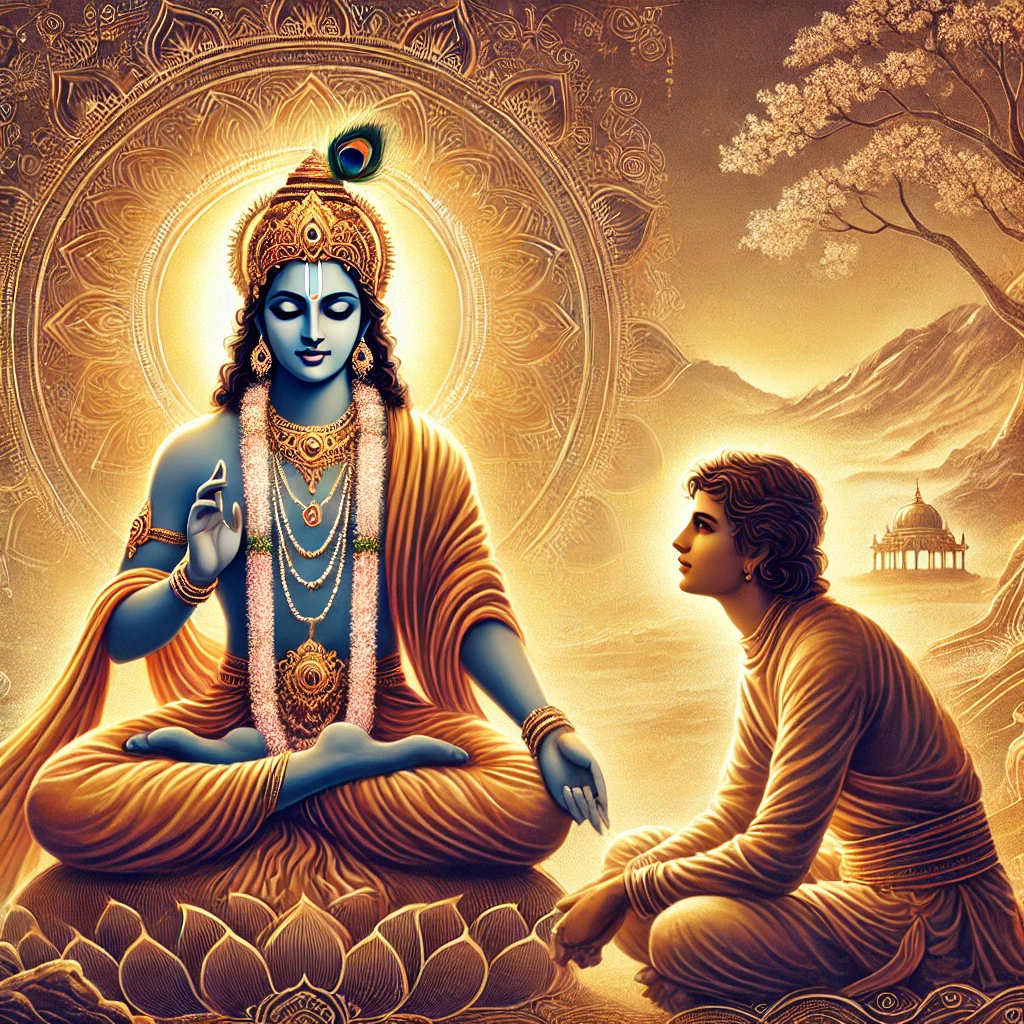In a world characterised by rapid change, uncertainty and the search for meaning, a work that was written thousands of years ago is becoming increasingly important: the Bhagavad Gita. Originally written in Sanskrit and part of the Indian epic Mahabharata, it was probably composed around 500-200 BC, although its exact date of origin is not certain. As a dialogue between the warrior Arjuna and the god Krishna, it is a text that deals with philosophical and spiritual questions in poetic form. What makes the teachings of the Gita so relevant today? And why do they seem to provide precise answers to some current questions?

The core message of the Bhagavad Gita
At the heart of the Bhagavad Gita the question of the right action in a world full of conflict. Arjuna, standing on the battlefield and wrestling with moral dilemmas, receives guidance from Krishna on overcoming fear and indecision. The Gita teaches the concept of ‘dharma’ (duty or way of life) and the need to act in accordance with oneself and universal principles. It emphasises that one should perform one’s actions detached from the outcome – a principle known as ‘Nishkama Karma’. This philosophy reminds us that it is not about success or failure, but about the value and integrity of the action itself.

The relevance of the Bhagavad Gita today
The teachings of the Bhagavad Gita could hardly be more relevant in modern times. Our world is characterised by uncertainty, stress and an often relentless competition that makes us restless people. The Gita’s call to act detached and not cling to results almost seems like an invitation to mindfulness – a call to be present and aware in the moment, without constantly focussing on the future or external successes. Fokus zu haben.
In times when many people are under pressure to be successful and always get ahead, the Gita reminds us that inner satisfaction and self-discovery do not come from external achievements. It encourages us to focus on the here and now and at the same time believe in our inner purpose. This approach can lead to a deeper, more sustainable way of life, especially in our achievement-orientated society.
Current questions and timeless answers
The Bhagavad Gita addresses many universal themes that are relevant in every era: the meaning of life, the importance of inner strength and the question of how to deal with responsibility. It focuses on self-reflection, personal responsibility and the balance between individual desires and a higher, common good.

Can the Bhagavad Gita provide answers to the questions of our time? For many people looking for guidance and inner peace, the answer is yes. The call to practise self-discipline and serenity and not to allow oneself to be led by one’s own fears and insecurities helps to build up an inner strength that can cope with the demands of our time.
The Gita can serve as a spiritual guide for your own „Mindful Living“ and shows that ancient wisdom often offers the clearest answer to modern problems.








